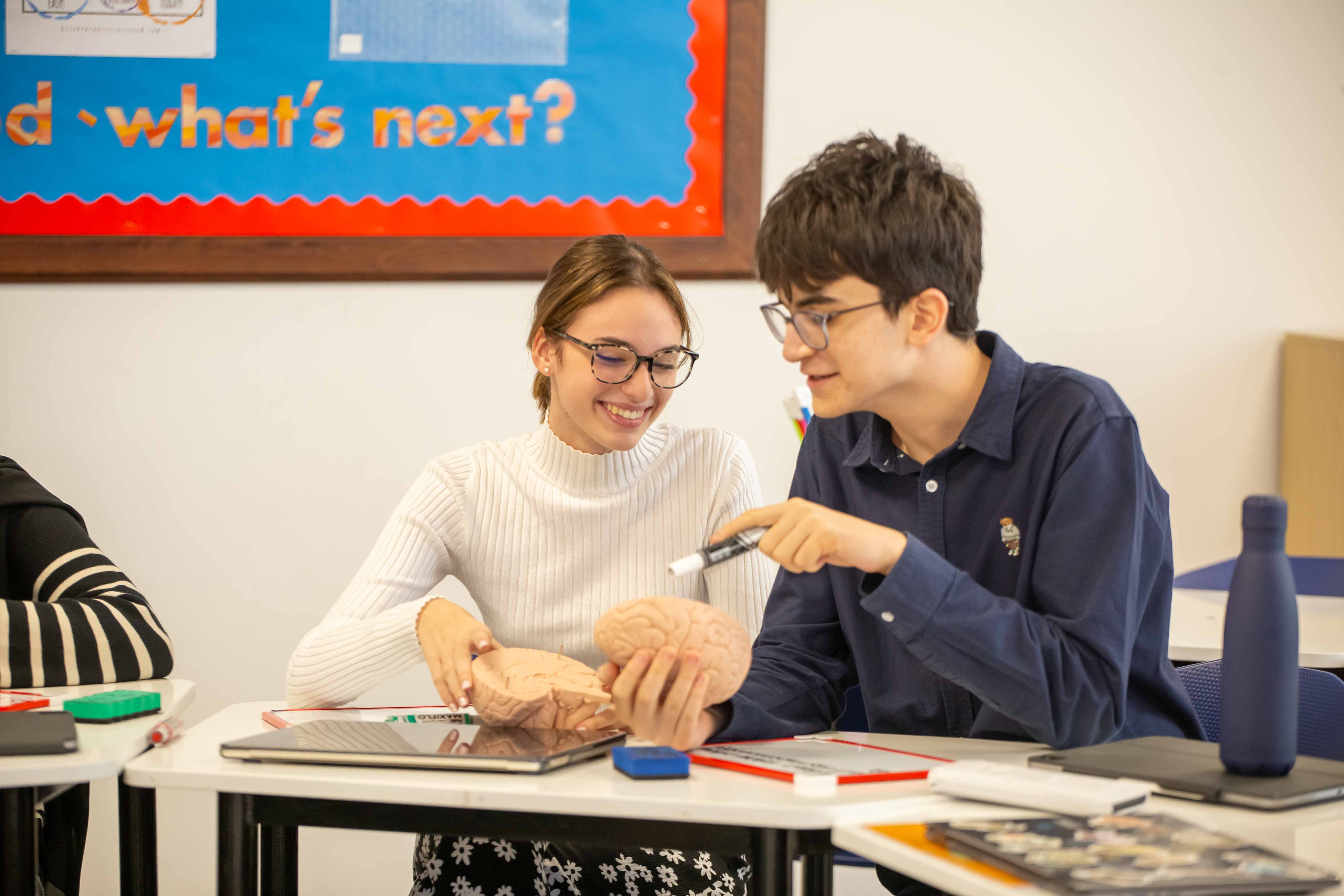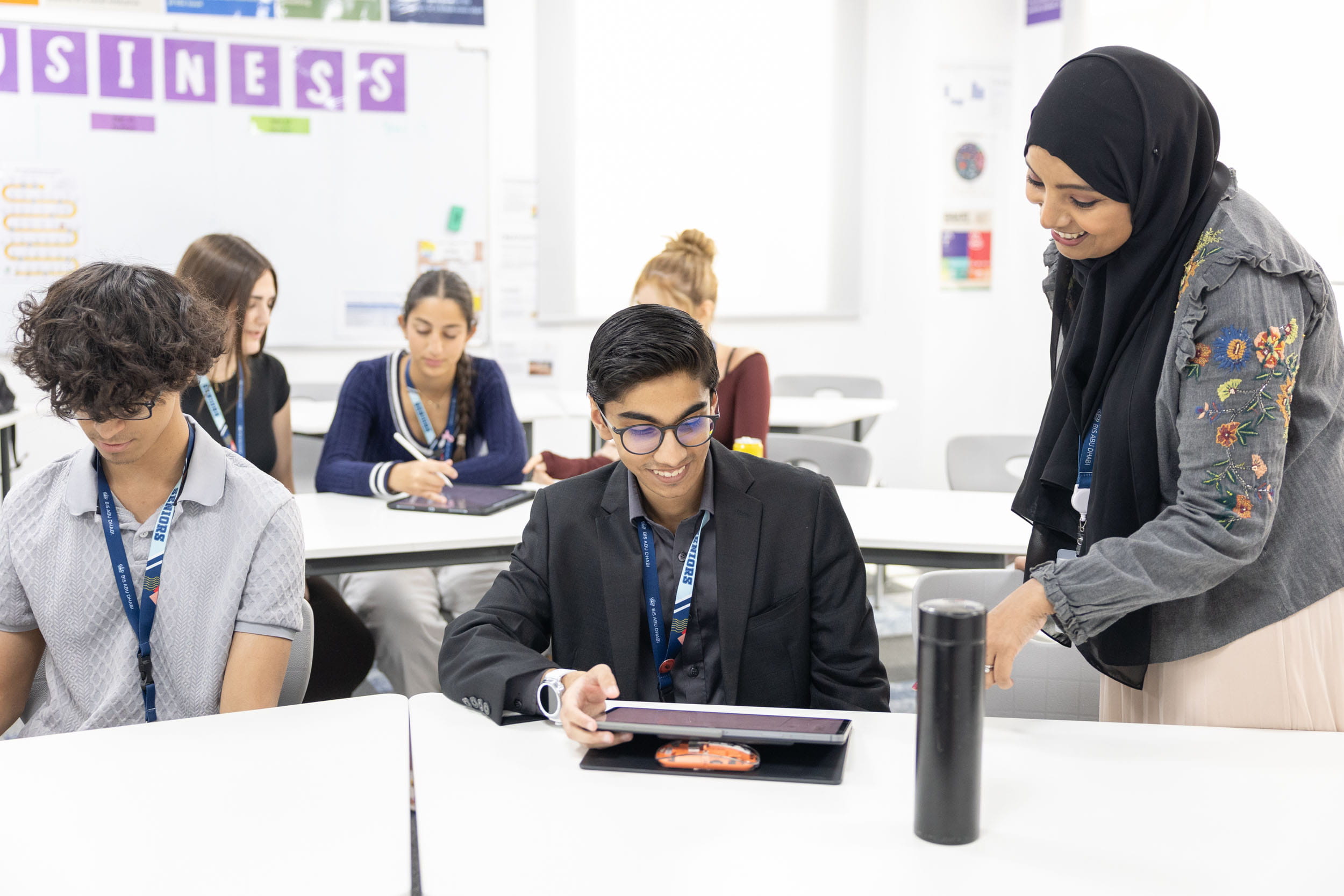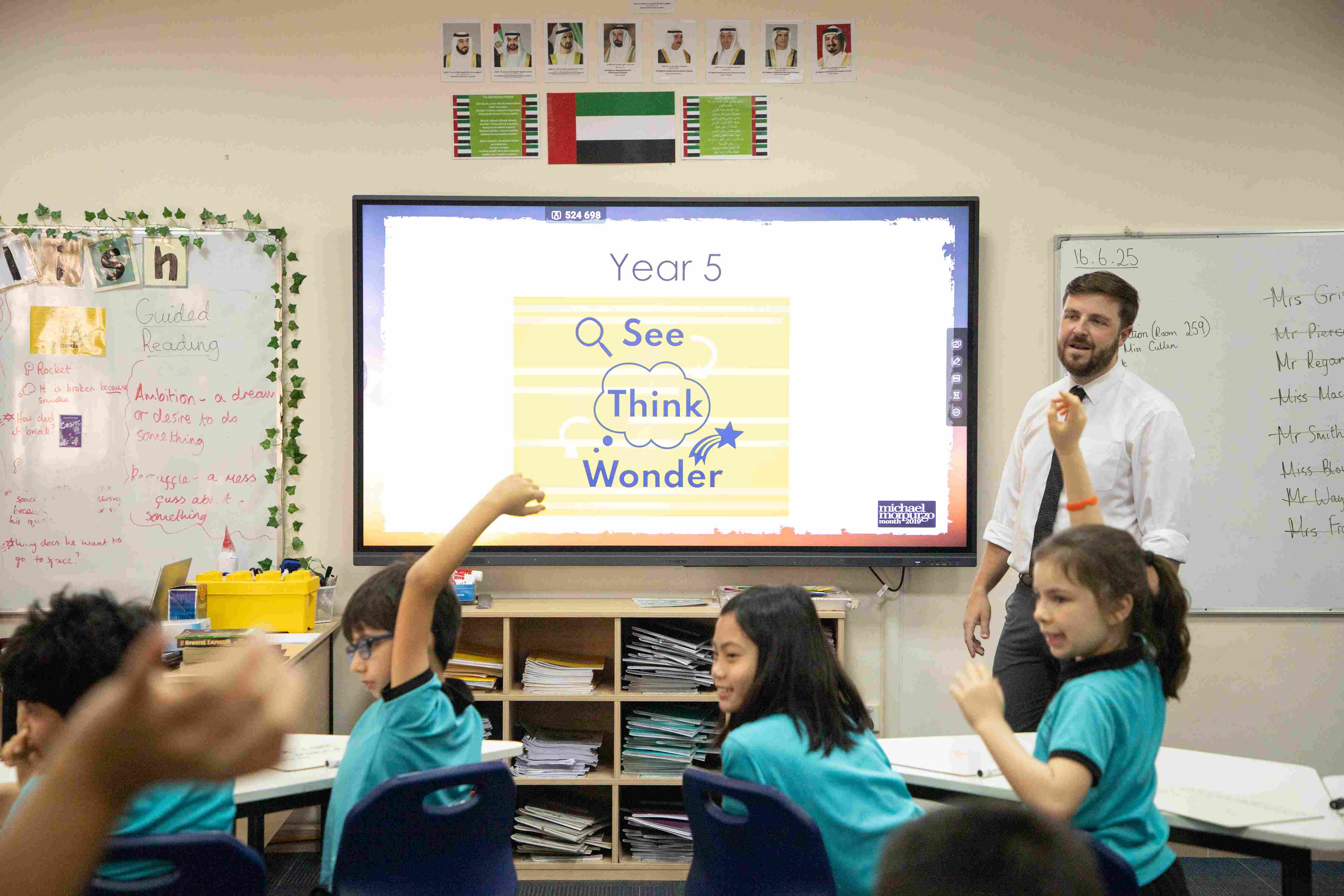What is emotional wellbeing?
When we refer to wellbeing, we are talking to about ‘emotional wellbeing.’ Emotional wellbeing refers to how well students can accept and manage their emotions. The way students handle daily challenges is influenced by their emotional wellbeing. Essentially, emotional wellbeing involves acknowledging, feeling, and effectively managing the various thoughts and emotions that accompany life.
Why is student wellbeing important?
In order for developing students to reach their utmost potential, it is important that their mental health and wellbeing is supported. Students with adjusted health and wellbeing are better equipped to handle the typical rigors of school life, from succeeding in their school work to making connections with their peers.
How we improve student wellbeing
Getting to know your child
To support and nurture an individual’s mental health and wellbeing, it’s crucial we get to know them as people.
Our teachers will take the time to understand your child’s background, culture, interests, and talents. They’ll also identify any of your child’s needs, preferences, and challenges.
They’ll then personalise the student’s entire educational experience. This will ensure our students will be engaged and motivated, and learning in a way that works for them. From a wellbeing perspective, personalisation will ensure your child feels heard, empowered, and valued, too.
Strategies that improve student wellbeing
The holistic education we offer at BIS Abu Dhabi – which is underpinned by our personalised approach – features a plethora of strategies that support our students’ health and wellbeing.
Creating an inclusive environment
Fostering an inclusive environment is one of our whole-school priorities.
A safe and secure school setting is key to ensuring children feel emotionally supported. We’ve invested heavily in our facilities and how the school ‘feels’, from creating a sensory nurture space to increasing the number of collaborative learning areas.
We have big plans to develop our dining spaces, too. This will increase social opportunities and help your child build even stronger connections with friends across the age groups.
Student voice
Student voice is incredibly important, and we make sure everyone feels empowered, valued, and heard.
One of the ways we do this is through our Student-Led Learning Conferences. These meetings involve our Years 7, 8, and 9 students, their form tutors, and parents. Our young people talk about their experiences in school, giving feedback on everything from lesson content and coursework to co-curricular activities and our campus.
Students prepare for these meetings by canvassing the opinions of their friends and form tutors. This gives them agency over their school experience – and shows them we’re listening.
Special wellbeing activities for students
Not only do we provide a range of wellbeing activities for students, but our students are heavily involved in the planning and delivery of wellbeing-focused events and activities, too.
- Last year, our young people collected kindness notes and displayed them across the school. They also created a Kindness Tree, which showcased positive messages from students and staff.
- Our ‘One People, One Planet’ Sustainability Day, meanwhile, has a prevailing mental and physical health focus. This and last year, students organised healthy eating stalls, yoga and other sports classes, and TED Talks about emotional wellbeing. The day is one of the most anticipated in our calendar, and our young people are already developing ideas to expand our wellbeing offer next year.
- Students also take the lead at our after-school Inclusivity Club. The club helps us set priorities as a school, including what we teach in assemblies and in our Personal, Social and Moral Education lessons. The group have recently designed a series of posters that support inclusion and cultural belonging.
Using technology to support student wellbeing
We also use technology to enhance our emotional support provision.
Our new YouHQ platform, for instance, is an online space where students in Years 6-13 can raise any issues, worries, or concerns. As a member of the Nord Anglia Education group of schools, we also have access to a wealth of resources on Global Campus. These include a Wellbeing Toolkit, which features monthly activities such as mindfulness and journalling.
Harnessing the benefits of technology in these ways – alongside what we already do in the classroom – has a noticeable impact on our students, giving them easy access to the support and resources they need.
A great example of this is our QR code self-referral system, which has led to a significant increase in the number of male students reaching out for emotional support. Research shows that boys are typically less likely to ask for help, so this tool is helping us reach a wider demographic.
Helping students navigate online challenges
While technology brings many positives, we’re also very aware of the challenges posed by the online world, and in particular social media.
We know that social media can contribute to mental health and wellbeing issues, including body image concerns and increased stress or anxiety. Cyberbullying is also a significant problem. The world of social media can feel all-consuming, too.
But social platforms can also provide invaluable access to information and resources. Students can, for example, find online communities and support groups that offer safe spaces to discuss feelings and connect with like-minded people.
To help your child navigate the pros and pitfalls of online life, we work in partnership with you, our parents. To read more on our E-Safety Parent Workshop earlier this year, click here. Technology isn’t going anywhere, and our challenge is to educate, learn together, and share knowledge.
We also raise awareness of new trends and offer guidance on the healthy use of social media. The responsible use of technology is central to our Digital Strategy and school-wide approach to safeguarding, too.
A community that cares about student health and wellbeing
Ultimately, our aim is to create an inclusive and supportive community where your child receives the personalised care and guidance they need to flourish. We encourage our young people to take responsibility for their emotional wellbeing, too, as well as that of others.
We do this by fostering a culture of care and empowerment, and by living our values of kindness, respect, and honesty. Your child’s health, happiness, and wellbeing will always come first at BIS Abu Dhabi – and if you have any questions or would like to talk to our team, we’d be very happy to chat to you.
For more information on how to improve student wellbeing and the emotional support we offer, please get in touch with our Assistant Head Wellbeing, Mrs. Sara Brazier, at Sara.brazier@bisad.ae or our Head of Ethos, Mrs. Kirsty Baker, at Kirsty.baker@bisad.ae.
Return to the newsletter



.jpg?h=1886&iar=0&w=3352&rev=082859130bfa45ffa2c70e9621219288&hash=473C16EFE67DB846C613D0EBE6E8A9FC)


.jpg?h=2801&iar=0&w=4201&rev=7a0888505a5f42e6ab63befb40d5cea2&hash=C8479B321E482770832C2BDB50B25386)
.jpg?h=2000&iar=0&w=3000&rev=2a4509b4e3664e3a9413bb2e24d0c0d0&hash=126C16ABFD3FC2298238A9890743F410)


.png?rev=1619813b30a347d9bc71977e2cfe09d2&hash=66B98CDC659BBF07EB36660B4381E1E7)